Ten receive Academic Staff Excellence Awards
Darren Berger, engineering and technical services manager for Environment, Health & Safety, performs a walkthrough of the mechanical and research areas of the Microbial Sciences Building. Berger is one of 10 recipients of a 2013 Academic Staff Award.
Photo: Bryce Richter
The 2013 Academic Staff Excellence Awards honor staff members representing a broad spectrum of fields and duties at the University of Wisconsin–Madison. Ten individuals have been selected to receive recognition for their achievements in leadership, public service, research, teaching and overall excellence.
This year, a new award was created, thanks to a donation from Margaret Harrigan, senior policy and planning analyst in the university’s Office of Academic Planning and Institutional Research. After Harrigan received a 2011 Champion Award, presented by the Women’s Philanthropy Council of the University of Wisconsin Foundation, she designated the university’s academic staff as the recipient of the accompanying $5,000 grant. The new award honors excellence in research in the arts, humanities and social sciences.
The Academic Staff Assembly honored the recipients on April 8; a reception with Interim Chancellor David Ward is scheduled for April 23.
“Whether contributing to research, teaching, outreach or administration, each member of our academic staff plays a critical role in the university’s success,” says Ward. “I offer my sincere thanks and congratulations to the recipients of these awards. Their dedication and insight facilitates the collaborative innovation for which UW–Madison is known.”
The recipients are:
Danielle Benden, senior academic curator, Department of Anthropology
Award for Excellence in Research in the Arts, Humanities, and Social Sciences
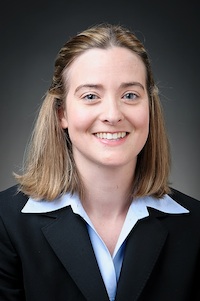
Benden
“Danielle has far exceeded the high expectations we had when we hired her as UW–Madison’s first permanent anthropology curator,”says Sissel Schroeder, professor of anthropology. “Most importantly, she is making substantial contributions to the principles that guide the management of archaeological collections at the national level, and has established a cutting-edge research trajectory on the archaeology of Wisconsin.”
A tireless advocate for collections-based research, Benden is an outstanding teacher, trainer and mentor for undergraduates, demanding the highest standards from herself and her students. She describes Native American artifacts as “living” objects, clearly conveying the care and consideration these materials deserve.
“I thoroughly enjoy the thrill of archaeological discovery in the field and lab,” says Benden. “It’s rewarding to put the archaeological puzzle together, explore how material culture informs about human behavior, share these discoveries with my students, engage them in meaningful dialogue and impart a sense of ethical conduct in caring for artifacts once unearthed.”
Darren Berger, engineering and technical services manager, Environment, Health & Safety
Martha Casey Award for Dedication to Excellence
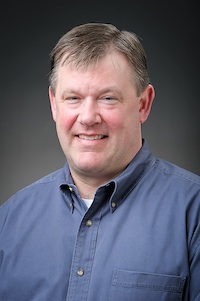
Berger
“UW-Madison relies on Darren to design, maintain and troubleshoot building controls and equipment for research facilities,” write Rebecca Moritz and Lisa Burley, Office of Biological Safety, in nominating Berger. “Only a handful of engineers in the country have Darren’s knowledge and experience, making him both essential and irreplaceable.”
Berger cares deeply about the people he serves through his work. He does whatever it takes to make sure that facilities work properly, often spending late nights and weekends in the office.
Berger’s expertise was crucial in designing and constructing the Influenza Research Institute, Microbial Sciences, Wisconsin Institutes of Discovery and — most recently — the addition to the Wisconsin State Laboratory of Hygiene. He has singlehandedly double-checked and fixed the work of countless architects, engineers, electricians, HVAC specialists and plumbers.
“Having the ability to collaborate with individuals at all organizational and professional levels across UW–Madison, the UW System and state of Wisconsin is the most rewarding part of my job,” says Berger. “It’s exciting to think that the success we achieve may have a global impact.”
Rosa Garner, ombudsperson, School of Medicine and Public Health and School of Pharmacy
Chancellor’s Award for Excellence in Service to the University
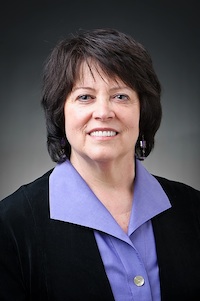
Garner
“Behind the scenes, Rosa does highly collaborative work, but doesn’t take the star role,” says Pat Kokotailo, professor of pediatrics and associate dean for faculty development and faculty affairs in the School of Medicine and Public Health (SMPH). “Instead, she works to improve the climate and community within the SMPH and School of Pharmacy, and the entire campus, with her diligence, persistence and attention to all people’s needs.”
Kokotailo describes the ombuds role as somewhat paradoxical: serving as a confidential resource to individuals while investigating and analyzing problems, yet seeking connection among all members of the academic community.
With grace, humor and warmth, Garner goes beyond divisional responsibilities to serve the greater university.
“It’s all about the one-on-one connection: learning individual experiences and aspirations as we explore possibilities for self-advocacy, resiliency and action,” says Garner. “I’m privileged to work directly with students, staff and faculty seeking creative, constructive strategies that address challenges to successful engagement.”
Ilia Guzei, director, Molecular Structure Laboratory, Department of Chemistry
Chancellor’s Award for Excellence in Research: Critical Research Support
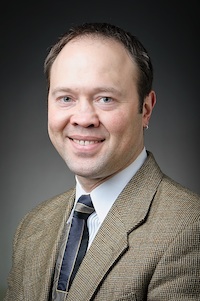
Guzei
“Ilia trains and advises X-ray crystallography facility users on projects, manuscript preparation, structural analysis and material crystallization,” says James Weisshaar, professor and chair of chemistry. “His enthusiasm has been a tremendous asset to the department, the university and the crystallographic community at large.”
Each year, Guzei’s lab analyzes more than 300 samples from research groups within the department and from outside collaborators. He has also spearheaded proposals that have significantly expanded the facility’s experimental capabilities and contributed valuable data interpretation for publications and grant proposals.
Guzei is also one of the world’s top crystallography experts, moderating an international crystallography forum and teaching courses in South Africa and Mexico.
“The chemistry department is an exceptionally collegial place,” says Guzei. “Collaborative projects are particularly rewarding, thanks to the diversity and breadth of ongoing research. Association with motivated scientists makes everyone perform at the highest level.”
John Pray, clinical professor of law, Law School
Robert and Carroll Heideman Award for Excellence in Public Service and Outreach

Pray
“John is probably best known — rightly — for co-founding the Wisconsin Innocence Project,” says Keith Findley, assistant professor of law. “That doesn’t tell the whole story. John’s clients, like his students, have come to trust and value John as a mentor, protector and friend.”
In clinical programs as well, including the Legal Assistance to Institutionalized Persons Project and the Criminal Appeals Project, Pray has spent extensive time debating cases with students and helping redraft pleadings, sometimes word by word. Students have gravitated toward his gentle style, approachability and humor.
Pray regularly speaks to community groups and lectures in both law school and undergraduate courses. He recently completed a six-year term on the Board of Bar Examiners, screening State Bar applicants to ensure proficiency and fitness for the profession.
“It doesn’t happen often,” says Pray, “but nothing beats walking an innocent person out of prison thanks to the hard work of law students and colleagues.”
Mary Prosser, clinical associate professor of law, Law School
Chancellor’s Hilldale Award for Excellence in Teaching
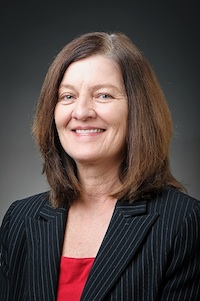
Prosser
“Mary is a fearless and active litigator, deeply committed to both students and clients in the Legal Assistance to Institutionalized Persons Project,” says Meredith Ross, clinical professor emerita of law.“Shecares a great deal about her students’ intellectual, emotional and professional development. She gives a great deal — talent and skills, time and effort, heart and soul — in return.”
Prosser helps students feel comfortable, yet challenged, encouraging exploration of new approaches without fear. At the same time, she consistently emphasizes to her students that they represent real people, to whom they owe thorough research into the facts and law, as well as the best possible advice and advocacy.
“My job combines two passions: teaching and practicing criminal law,” says Prosser. “It’s wonderful to be able to collaborate with engaged students as they learn a new profession — and share what it means to help other people with real problems.”
Miriam Simmons, assistant dean emerita for graduate professional development, Graduate School
Ann Wallace Career Achievement Award

Simmons
“Miriam’s leadership of the Office of Professional Development and Engagement encouraged creativity, independence, efficiency and cross-campus networking,” says Martin Cadwallader, dean of the Graduate School and vice chancellor for research. “Before retiring, Miriam’s cooperative leadership style helped smooth the program’s transition into new hands. Still, it will be hard to equal the standard of excellence set by her enthusiasm and commitment.”
Simmons has shepherded more than 200 staff and 500 faculty through the annual Wisconsin Idea Seminar. Her stimulating itineraries provided concrete examples of the university’s statewide impact, creating opportunities for new faculty to experience the environments — rural and urban — that influence the majority of the university’s students. Participants consistently praised the seminar’s efficient organization, outstanding speakers and lasting value.
“I’ve always enjoyed the planning process, whether designing events in staff meetings, developing the Wisconsin Idea Seminar or discussing the Wisconsin Women in Higher Education Leadership conference,” says Simmons. “It’s gratifying to share ideas and see one suggestion turn into something even better.”
Kumar Sridharan, distinguished research professor, Departments of Engineering Physics and Materials Science and Engineering
Chancellor’s Award for Excellence in Research: Independent Investigator
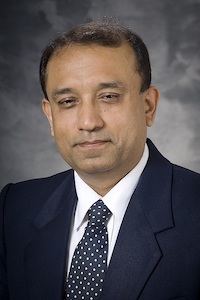
Sridharan
“Kumar is one of the most productive researchers in our department,” says Jake Blanchard, professor and chair of engineering physics. “His innovative research ideas have played a central role in developing and advancing several innovative concepts related to nuclear materials and other important engineering applications of novel materials, significantly enhancing national and international visibility for himself and UW–Madison.”
Sridharan has placed numerous publications in top materials journals and has procured highly competitive grant awards from a range of federal agencies and industry. His grant-procurement record in nuclear materials ranks among the highest of any primary investigator in the country.
Sridharan found it difficult to name the most rewarding aspect of his job, but settled on two answers: “I would say discovering new aspects of materials structure and performance, as well as educating and mentoring students to become better researchers.”
Cathy Trueba, director, McBurney Disability Resource Center, Division of Student Life
WAA Award for Excellence in Leadership: Individual Unit Level
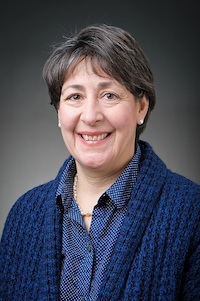
Trueba
“Cathy’s deep commitment to social justice grounds her approach to disability services,” says Lori Berquam, dean of students. “Cathy’s leadership helps UW–Madison go far beyond legal requirements, making a profound difference in the student experience. Her commitment to accessibility means that every student has the same opportunity to learn and be successful.”
Trueba’s “never give up” attitude has made UW–Madison a leader in the disability arena. She continually brings new ideas to campus, such as McBurney’s groundbreaking support for students with disabilities who are studying abroad. UW–Madison may be the only American university with staff specifically assigned to transition services. Students with disabilities have access to assistance as they arrive on campus, gain important life skills during their studies, and prepare for post-college life.
“Working with colleagues across campus to ensure an accessible, respectful community for all who live, work and play here is the most rewarding aspect of my job,” says Trueba. “I’m constantly inspired to see a commitment to go beyond the letter of the law.”
Ann Whitaker, outreach program manager, Professional Development and Applied Studies, Division of Continuing Studies
Wisconsin Alumni Association Award for Excellence in Leadership: College, School or the Larger University Community Level
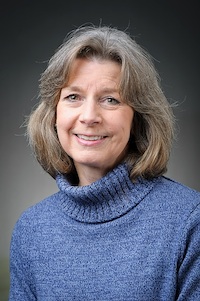
Whitaker
“We rely on Ann for effective leadership and high-quality outcomes,” says Suzanna Waters Castillo, lecturer and faculty associate in Continuing Studies. “An Albert Schweitzer quote summarizes Ann’s style: ‘Example is not the main thing influencing others. It is everything.’”
Colleagues and participants often comment on Whitaker’s contributions thanks to her fairness, approachability, knowledge and grace.
Whitaker has championed the development and implementation of outstanding continuing education programs in child and adolescent mental health. Actively networking with key stakeholders, her hands-on approach to program management has impacted thousands of professionals from Wisconsin and surrounding states.
Whitaker’s comprehensive attention to detail — fiscal, developmental and interpersonal — makes her an ideal mentor for recently hired program managers. They benefit greatly from her knowledge of wider university policies and procedures.
“I’ve developed enduring relationships with adult students who return year after year,” says Whitaker. “The last year has been particularly meaningful, mentoring new staff in my department as I’ve shared many lessons from my nearly 30-year career.”
—Portraits by Bryce Richter, University Communications and Marketing
Tags: academic staff, staff awards
